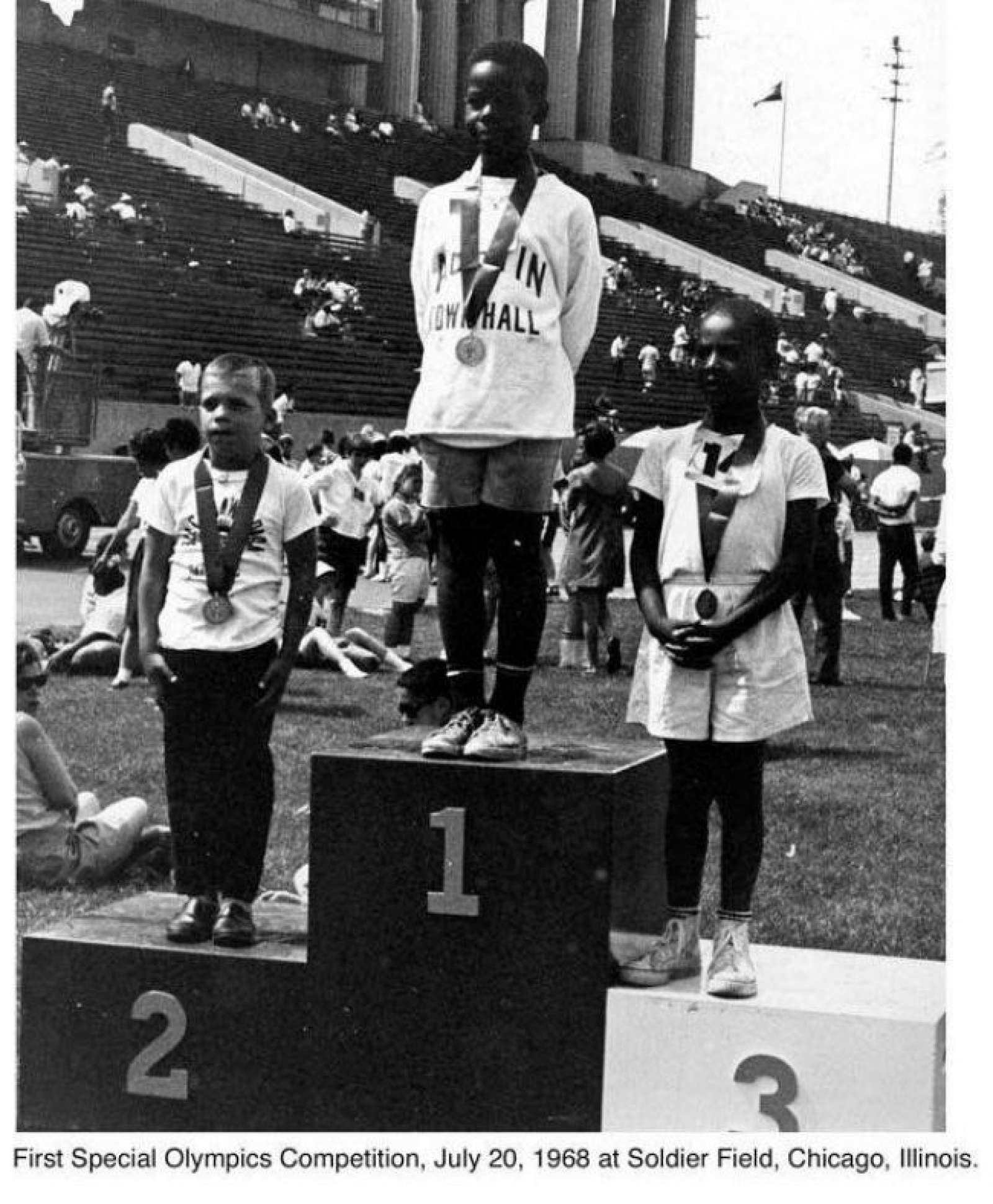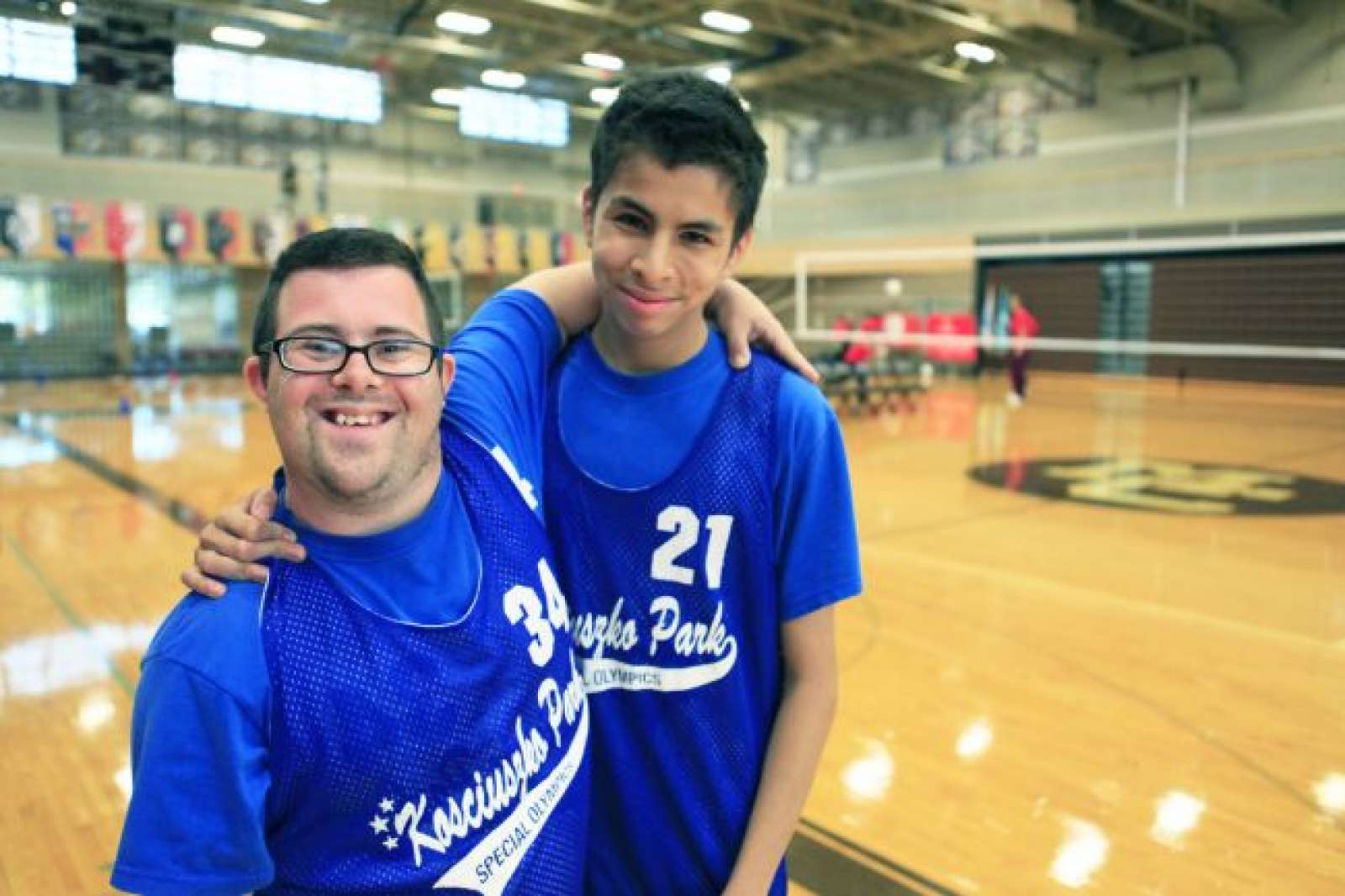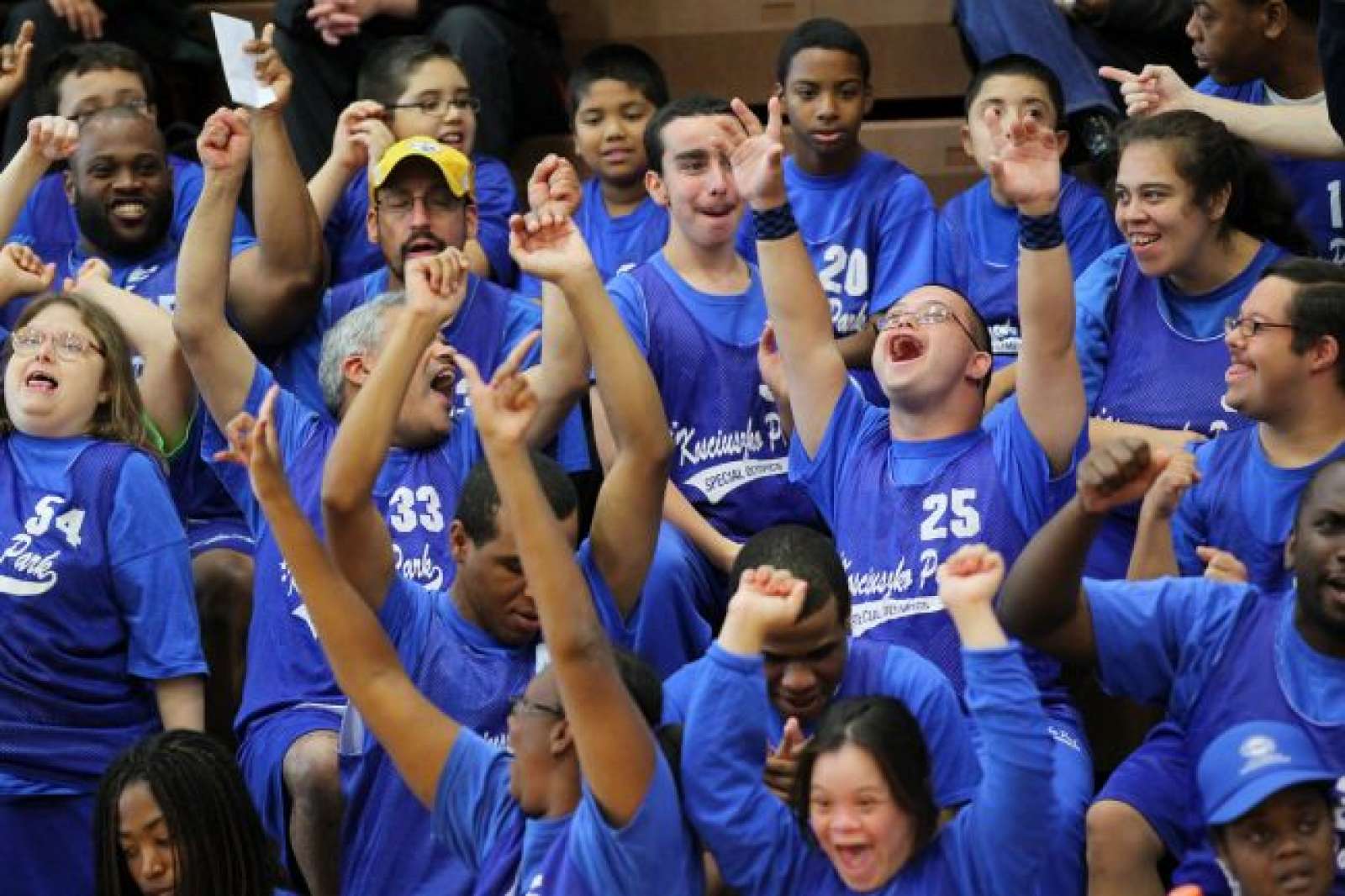Posted 6 years ago in Guest Blog by Alicia Pope
A global movement that impacts 5.3 million people in more than 170 countries reaches a crescendo this week at its Soldier Field birthplace.
Among the 35,000 or so participants and spectators at the Special Olympics 50th Anniversarycelebration spanning five days on the lakefront, none will be more touched than DePaul alumnus and Special Olympics founder Anne Burke.
Even as Burke smiles while watching Blue Demon student-athletes, coaches and staff members volunteering at Saturday’s Global Day of Inclusion festival, she will remember a time in 1968 when a 24-year-old Park District instructor defied nearly insurmountable odds to launch a vision of hope and inclusion.

Burke shared with Chicago Magazine this recollection of her early special education camp and an eight-year-old boy named Kevin O’Brien with Down’s Syndrome.
“He came up to me and gave me a hug, and his affection was contagious,” she said.
The magazine article continues: Kevin didn’t speak much, so Burke began playing catch with him. He caught the ball and threw it back. It was a major shift for her as both an instructor and a person: “I realized he responded the way any other kid would, that he was the same. The children needed to be seen as people first.”
Conquering her own uncertainty while eventually including physical as well as intellectual special-needs children was just the tip of this iceberg. For the longest time, the shame and fear of integrating these kids into mainstream society had kept them out of school, sheltered by their parents from abuse and ridicule.
Here is a description of the feature film project from the Deadline Hollywood website.
“‘Special’” is the true, inspirational tale of 24-year-old Anne Burke who, in 1968, during a time of social and political unrest, created the Special Olympics. It’s a female underdog story about defying the odds to create an event that brought thousands of disabled children out of the shadows, an event that would grow into a worldwide phenomenon championed by Eunice Kennedy Shriver.

“As a shy, dyslexic college drop-out working for the Chicago Parks & Recreation Department, Burke was the least likely person to become a heroic champion for the disabled. The myriad of obstacles in her path included the famously bigoted head of the (U.S. Olympic Committee) who did not want to “dilute the brand” by allowing “retarded” children to masquerade as Olympians.
“Her quest took place against the turbulent backdrop of anti-war and civil rights protests, at a time when the rights of the disabled were low on the priority list of progress. Most poignantly, Burke faced resistance from the parents themselves who feared to expose their children to ridicule. Her passion for the kids never wavered, and along the way, something extraordinary occurred: This unassuming, reserved young woman found her own voice.”
Burke was asked about the resistance she encountered to make her Special Olympics dream a reality:
“It wasn’t just the USOC or the parents who were negative,” Burke recalled. “It was also the Department of Health, Education and Welfare and the National Parks and Recreation Association. I went to them to ask for their endorsement, but they refused.
“Nothing would ever get done in this world if we let other peoples’ negativity discourage us and keep us from doing what we know is right. I knew from my experience working with special-needs children that they loved competition and showing others what they could do. I wasn’t going to let other peoples’ opinions dissuade me from my goal of having a Special Olympics.”
Organizing the first Special Olympics 50 years ago set Burke on a whole new path in life as she helped bring the intellectually disabled out of the shadows.

“Special Olympics inspired me to go back to school,” she said. “It was when I was trying to gain support for Special Olympics from the USOC and other organizations that I came to the realization that I was not being heard or taken seriously because I had no credentials. Why should they listen to me?
“So, in large part, I went back to school to earn a teaching degree so that I would be better equipped to continue the work I had already been doing. I believed that an education would provide the knowledge and credentials that would allow me and my ideas to be taken more seriously.
“I am so grateful that DePaul’s School of New Learning provided me—a married woman (to Ald. Ed Burke) and mother of three small children—the opportunity to go back to school and achieve those goals.”
What she learned at DePaul fit like hand-in-glove with the special kind of human being who works with Special Olympics—people filled with kindness, compassion, generosity and being able to genuinely put others ahead of themselves.
“Absolutely!” Burke exclaimed. “St. Vincent de Paul was a champion of the most vulnerable of our society. Helping those who are less fortunate and most vulnerable is the Vincentian charism—it is what Vincentians do. I know that DePaul teaches its students to find opportunities to serve others and to treat all people with justice and equality.”
Members of the DePaul men’s and women’s basketball teams and the golf team along with their coaches and staff members will work at sports clinics at the Day of Inclusion celebration that will also feature historical exhibits and a cultural walk, food kiosks, interactive games, an amusement zone with rides, celebrity appearances, flag football, soccer, bocce, handball and floor hockey, a vendor/resource fair and live entertainment. There will be a celebration concert Saturday night at Northerly Island.
The four-day Unified Cup soccer tournament showcasing 24 teams of athletes with and without intellectual disabilities culminates with the championship match Friday at Toyota Park that will be televised live on ESPN. The worldwide sports network will also show highlights and clips during the week from first-round and group-stage matches.
The 50th Anniversary celebration will be the latest in DePaul’s ongoing partnership with Special Olympics that has featured numerous sports clinics, a fundraiser event and an All-Sports Day at McGrath-Phillips Arena.
